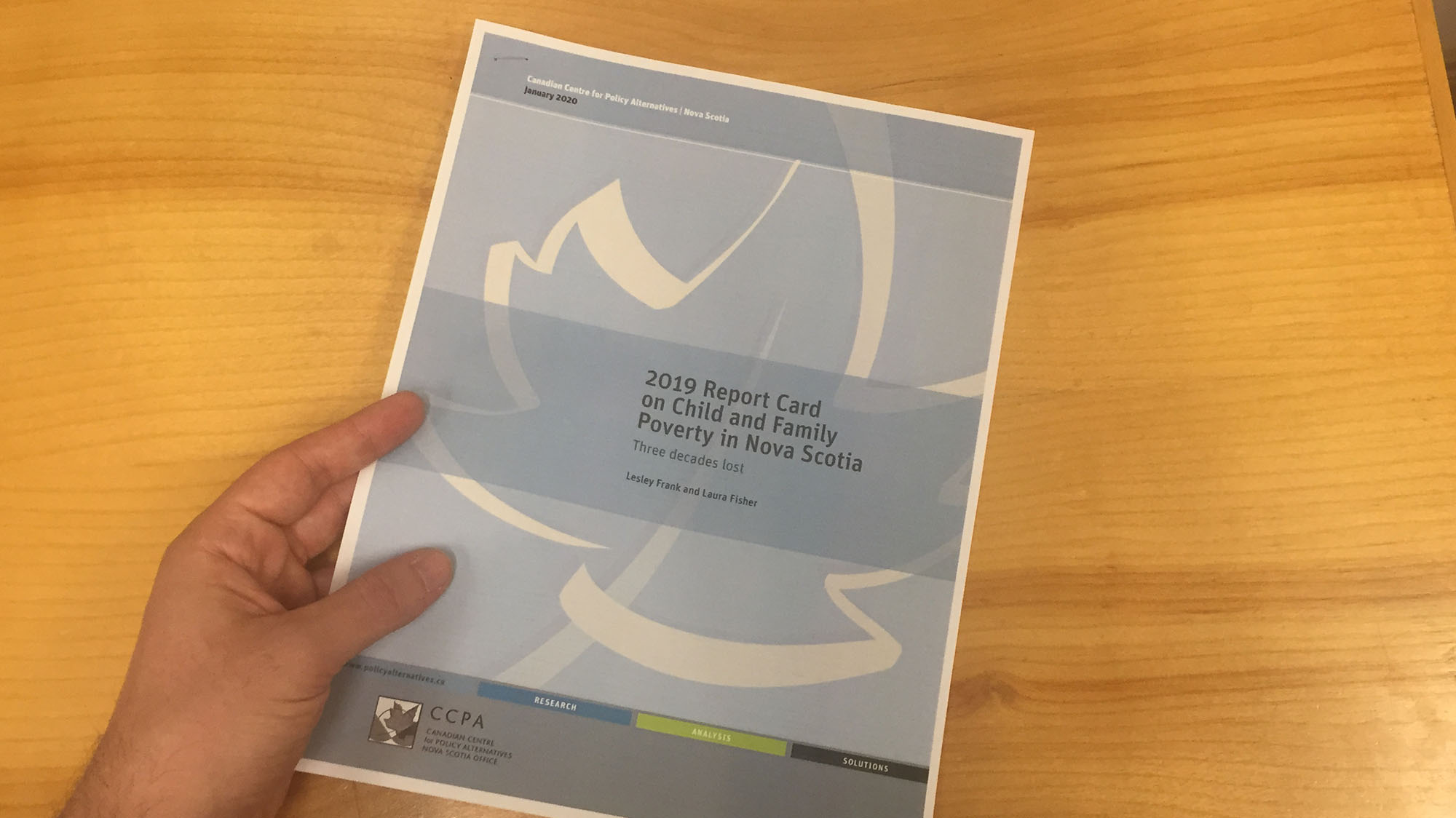Child poverty in Nova Scotia barely improved in 30 years
Data suggests child poverty remains rampant, and has reduced little since Canada’s resolution to end it

caption
The 2019 Report Card on Child and Family Poverty in Nova Scotia.A sociologist who’s been writing reports on child poverty for 20 years said she’s discouraged that the number of children living below the poverty line in Nova Scotia has barely gone down in three decades.
According to the Canadian Centre for Policy Alternatives’ 2019 Report Card on Child and Family Poverty, nearly a quarter of Nova Scotian children were living in poverty in 2017, amounting to 40,710 kids in total.
Lesley Frank, a professor of sociology at Acadia University, said these numbers are disappointing.
“It is frustrating. I have to keep doing it though. I have to keep the issue in the minds of not just the governments but people’s minds in the province,” said Frank, who co-authored the report with Laura Fisher, a master’s student of sociology.
According to the study, Nova Scotia had the highest child poverty rate in Atlantic Canada, and the third highest in all of Canada. The report said a number of variants contributed to this issue, including geography, social group, family type, and age.
The House of Commons made a Canada-wide resolution in 1989 to end child poverty across the country by 2000. Nova Scotia has decreased child poverty by less than one per cent since the resolution — the worst result of all provinces.
The Canadian Centre for Policy Alternatives based these numbers off of surveys done by Statistics Canada and data from income tax forms. The data is from 2017 because it takes Statistics Canada two years to compile and prepare the information for public use.
In an email, Lynette Macleod, spokesperson for Nova Scotia’s Department of Community Services, said: “This data should be used with caution because a small sample size may not be representative of the circumstances of the entire population. We continue to work with Statistics Canada to improve their data quality for Nova Scotia and we look forward to their next update in February 2020.”
Frank said she’s not surprised by this response from the government.
“It’s a typical response, in some way, to blame the statistics,” she said. “To say they’re too old, well, I remember that they said that two years prior.”
In terms of geography, Cape Breton and the Annapolis Valley have the highest rates of child poverty at 34.9 per cent and 34 per cent. Halifax and Antigonish are just above 20 per cent.
The study also suggests 50 to 75 per cent of children in Mi’kmaq communities were living in poverty. This amounts to two to three times the average poverty rate in Nova Scotia.
In late 2017, Nova Scotia had the third-lowest minimum wage of all provinces in Canada. Provinces with the lowest minimum wage also have the highest child poverty rates.
Frank believes Nova Scotia’s minimum wage is a barrier to families trying to break out of poverty.
“The families that we’re talking about are mostly working families,” Frank said.
“These are people that are working full time for minimum wage, and they are living below the poverty line.”
The report said one in two children with single parents are living in poverty in Nova Scotia. Eighty-eight per cent of those families are led by a single mother.
“We are not good at recognizing the work of caregiving, and the need for economic security in order to do that work,” Frank said.
The report card proposes a number of recommendations for the province, including:
- Raising minimum wage
- Providing non-profit, cooperative housing options
- Implementing an affordable early childcare system
- Adjusting income assistance and benefits to rates in line with inflation
“You can’t be surprised if poverty rates increase when you don’t keep your own benefits consistent with inflation,” said Frank. “It shouldn’t be a surprise to people.”
About the author
Michael Trombetta
Michael is a student writer at King's College. He's an English literature graduate of Ryerson University. Interested in people, our environment,...
